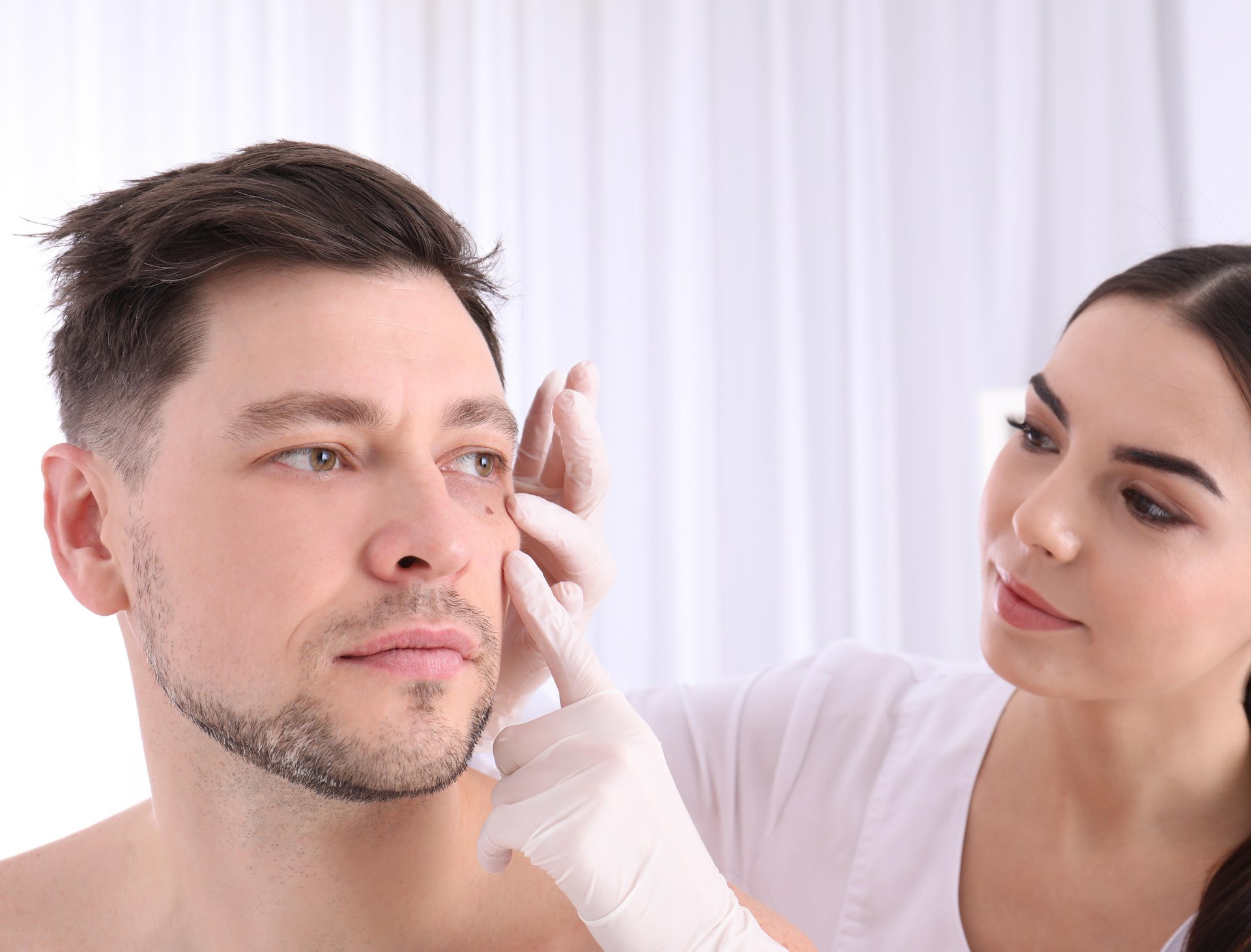Risk for Subsequent Facial Keratinocyte Carcinoma Lower With Laser Treatment

TUESDAY, Jan. 24, 2023 (HealthDay News) -- For patients with a history of facial keratinocyte carcinoma (KC), nonablative fractional laser (NAFL) treatment is associated with a reduced risk for subsequent development of facial KC, according to a study published online Dec. 6 in Dermatologic Surgery.
Travis A. Benson, M.D., from Harvard Medical School in Boston, and colleagues conducted a retrospective cohort study involving patients with a history of facial KC treated between 2005 and 2021 to examine whether NAFL treatment is associated with a decrease in subsequent facial KC development. The study included 43 NAFL-treated patients with a history of facial KC and 52 matched controls.
The researchers found that the rate of subsequent facial KC development was 20.9 and 40.4 percent in NAFL-treated patients and controls. Compared with NAFL-treated patients, controls developed new facial KC significantly earlier. Controls were more likely to develop new facial KC than NAFL-treated patients when controlling for age, gender, and skin type (hazard ratio, 2.65).
"These findings suggest that NAFL treatment may have an important role in protecting against subsequent keratinocyte carcinomas," a coauthor said in a statement. "While the mechanism of NAFL's protective effect is not completely understood, it is suspected that NAFL treatment reduces the overall burden of photo damaged keratinocytes and may promote a wound healing response, which gives healthy skin cells a selective advantage."
Abstract/Full Text (subscription or payment may be required)
Related Posts
Same-Day Discharge Increasing for Hip, Knee Arthroplasty
THURSDAY, Jan. 20, 2022 (HealthDay News) -- Same-day discharge (SDD) is becoming...
Cutting Carbs Could Cut Your Risk for Diabetes
THURSDAY, Oct. 27, 2022 (HealthDay News) -- People at risk for developing...
Las vacunas de COVID-19 potencian los anticuerpos, incluso en personas con sistemas inmunitarios debilitados
MIÉRCOLES, 1 de septiembre de 2021 (HealthDay News) -- Las vacunas contra la...
